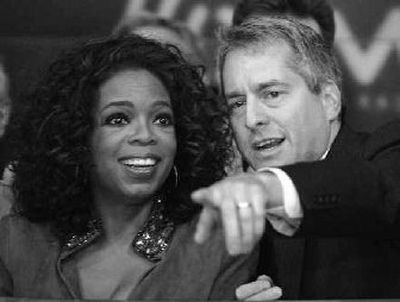Satellite radio merger will face plenty of static

NEW YORK — Federal regulators warn that combining rivals Sirius Satellite and XM Satellite Radio will be a tough process, since there’s already a provision barring both satellite radio licenses from being owned by the same company.
Sirius Satellite Radio Inc. and XM Satellite Radio Holdings Inc. announced an agreement to combine on Monday in a move aimed at reducing costs. Shares of both companies rose sharply in early trading on Tuesday.
The Federal Communications Commission will evaluate any proposed transaction to see if it’s in the public interest, FCC Chairman Kevin Martin said following the announcement, adding that: “The hurdle here, however, would be high as the commission originally prohibited one company from holding the only two satellite radio licenses.
“The companies would need to demonstrate that consumers would clearly be better off with both more choice and affordable prices,” Martin said.
The FCC already has a provision in place specifically barring both satellite radio licenses from being owned by the same company.
XM and Sirius have racked up significant financial losses to subsidize new subscribers even as they escalated an arms race to lock in long-term programming deals. Sirius signed a five-year, $500 million deal in 2004 with shock jock Howard Stern, while XM paid $650 million for an 11-year deal with Major League Baseball. XM signed a three-year, $55 million deal with Oprah Winfrey.
A major rationale for combining the two companies would be to save costs.
Mel Karmazin, the CEO of Sirius who will become CEO of the new company, declined to comment in an interview about how much the companies hoped to save by the merger. He said he was optimistic about achieving regulatory approval, but acknowledged: “We understand that there’s a lot of work to be done.”
Investors and analysts have been speculating about a deal for months, and are hoping that the cost savings that would result would give the companies a boost amid softening retail demand. Both services offer dozens of channels of talk and commercial-free music for monthly fees of about $13.
XM radio receivers can’t receive signals from Sirius, and vice versa. But Karmazin and Parsons said in an interview that the companies are working on developing a receiver that could receive both signals.
In the meantime, they said, assuming the deal goes through, the companies would make other arrangements to bring programming that’s currently exclusive to one provider to listeners of the other, such as getting Major League Baseball games — currently only available on XM — to Sirius listeners.
The companies billed the deal as a merger of equals, with shareholders of both companies owning approximately 50 percent of the combined company. However, Karmazin will run the combined company and XM’s CEO Hugh Panero will stay on only until the deal is closed. XM Chairman Gary Parsons will remain in that role.
XM shareholders will receive 4.6 shares of Sirius stock for every share they own, valuing the company at $4.57 billion or $17.02 per share based on Friday’s closing price for Sirius shares.
That gives XM shareholders a premium of 22 percent to the $13.98 closing value of their stock on Friday. XM’s shares jumped $1.52 or 11 percent to $15.50 in early trading Tuesday on the Nasdaq stock market, while Sirius’ rose 23 cents or 6 percent to $3.93, also on the Nasdaq.
A combination would also have to meet antitrust approval from the Department of Justice.